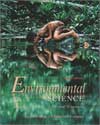Are there universal, eternally valid ethical principles or moral laws? Universalists think so. Nihilists disagree. Relativists believe that everything is contextual. Utilitarians hold that something is good that brings the greatest good to the greatest number. Postmodernists argue that everything is socially constructed. Ecofeminists contend that patriarchal systems of domination and duality cause both environmental degradation and social dysfunction. They call for a more pluralistic, nonhierarchical, caring treatment of both nature and other people. Whichever of these worldviews you hold shapes your views about nature and our place in it. Anthropocentrists claim that the world was made for our domination, and that only humans have inherent or intrinsic rights and values. Nature, from this perspective may be only a source of materials for humans. Many people who live close to the land, on the other hand, often feel a sense of stewardship or responsibility to care for creation. They see themselves as caretakers rather than dominators. Biocentrists consider all living things to have inherent value. We are merely one of many species. Animal rights advocates place their emphasis on individual animals. Ecocentrics maintain that ecological processes such as evolution, adaptation, and biogeochemical cycles are the most important parts of nature. In their view, individuals don’t count for much and humans are mostly a negative influence. Science is a methodical, meticulous study of the natural world. It takes many different forms and is practiced in various ways by diverse people, but observation, hypothesis formation, testing, analysis, and reevaluation of hypotheses in light of new data form the core of positivist scientific methodology. Descriptive or interpretive sciences take a more holistic, inductive approach to knowledge. Technology brings us many benefits, but it also creates pollution, consumes resources, despoils nature, and allows us to separate individuals, classes, and nations into those who have and those who do not. It gives us the power to make mistakes faster and on a larger scale than ever before. Then again, appropriate technology may also provide options to avoid environmental damage in the future or to repair mistakes made in the past. |



 2003 McGraw-Hill Higher Education
2003 McGraw-Hill Higher Education